What is frozen shoulder?
Frozen shoulder is a painful condition that makes it hard to move your shoulder through its normal range of motion. Pain and inflammation limits movement leading to stiffness, which causes more pain when you try to move, trapping you in a vicious cycle.
Frozen shoulder needs careful diagnosis and treatment. Full recovery can take months or years, making it vital that you get the right treatment to mobilise your shoulder as soon as possible.
Understanding your shoulder
Your shoulder is quite a complicated part of your body, designed to hold your arm in place while allowing you to move it through a wide range of motion. Every time you throw a ball, brush your hair, reach up to a high shelf or buckle up your seatbelt, you’re using your shoulder.
Inside the shoulder joint sits a soft tissue sack called the capsule, which stabilises your shoulder. In frozen shoulder (officially known as adhesive capsulitis), the capsule becomes inflamed and shortened, causing tightness, pain and limited ability to move your shoulder.
That pain makes you less likely to use your shoulder. Lack of use makes the capsule thicken and tighten even more, making it even more difficult to use. It’s like it’s been frozen in place – which is why we call it frozen shoulder.
Symptoms of frozen shoulder
Frozen shoulder typically begins gradually, then gets worse before resolving, usually within 1-3 years.
If you’ve developed frozen shoulder, you may experience pain that:
Feels intense
Radiates down your arm
Gets worse when you move your shoulder and better when you rest
Disturbs your sleep
Spreads to your upper back and neck.
You might find that you’re becoming increasingly cautious about moving your shoulder, can’t reach behind your back easily and now hold your arm close to your body rather than letting it swing when you walk. Muscle spasms can also happen.
Who is most likely to develop frozen shoulder?
We don’t yet know exactly what causes frozen shoulder but the most common risk factors are:
Being over 40
Being female
A shoulder that’s already experiencing reduced mobility due to a:
Rotator cuff injury
Broken arm
Stroke
Recent surgery
An underlying medical condition such as:
Diabetes
Thyroid disorders
Cardiovascular disease
Parkinson's disease.
Treatment for frozen shoulder
There’s a very understandable temptation to stop using your frozen shoulder. After all, it really hurts! Yet completely avoiding all movement will actually worsen the condition.
Treatment for frozen shoulder aims to relieve pain and improve mobility using a wide range of therapies dependant on your condition. Your Chiropractor may assign a course of care that includes:
chiropractic adjustments to help mobilise the joint.
specific exercises to stabilise the joint.
stretches to stretch the soft tissues.
massage and trigger point therapy to release adhesions and muscle spasming.
Shoulders are complex areas with many moving parts. Your Chiropractor may also advise a holistic team care approach of chiropractic care along side:
physiotherapy
massage
acupuncuture
dry needling
your general pratitioner
More invasive treatments for a shoulder that does not respond to conservative treatments include injections and surgery.
To help your frozen shoulder improve, you need to be:
Diligent – do your exercises every day using the precise techniques taught to you by your chiropractor or physiotherapist
Patient – frozen shoulder can take a while to fully ease so don’t give up.
How long does it take to recover from frozen shoulder?
It may take a few years for your frozen shoulder to fully recover. It has to move through 3 recognised stages:
Freezing (weeks to months) – pain and stiffness increase
Frozen (months) – pain may lessen but the stiffness persists, making it hard to do everyday activities
Thawing (months to years) – pain and stiffness ease as you regain normal strength and movement.
Chiropractic care for frozen shoulder
A chiropractor can help improve your frozen shoulder through:
adjustments of your cervical and thoracic spine (your neck and middle back) to improve mobility. The nerves of your lower neck also supply your shoulder and arm.
Massage to increase blood flow, break up adhesions around your shoulder capsule and ease pain
assign stretching and strengthening exercises for you to do regularly at home.
Come to Nurture Chiropractic
If you’re seeking a natural, nurturing and mindful chiropractic experience, then please visit us at Nurture Chiropractic in the beautiful Tweed Heads region. We’re eager to meet you and help relieve symptoms of frozen shoulder.
Contact Us
Phone 07 5524 2846
Mobile 0411 228 114
Email hello@nurturechiropractic.com.au
18/8 Corporation Circuit
Tweed Heads South NSW 2486
Clinic Hours
Monday: 8:30am – 12pm & 2 – 6pm
Tuesday: 8:30am – 12pm
Wednesday: 2pm – 6pm
Thursday: 8:30am – 12pm & 2 – 6pm
Friday: CLOSED
Saturday: 8:30am – 12pm
* Twice per month
Sunday: CLOSED
Got A Question?
To request an appointment or to ask a question, fill in our form below and our friendly staff will be in touch shortly!




